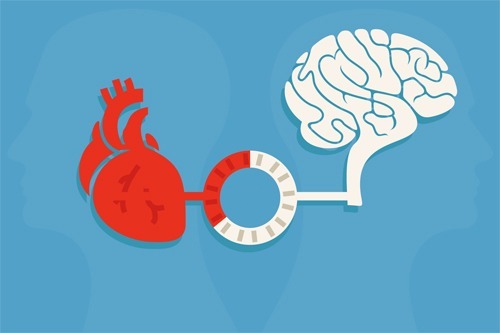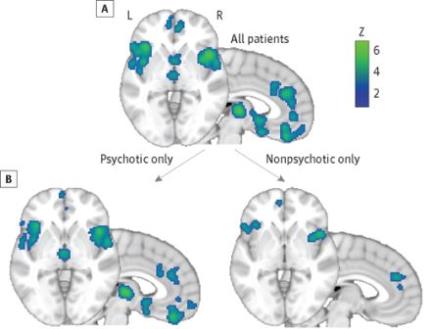Posts Tagged ‘brain pathology’
Questions grow about the validity and usefulness of direct-to-consumer blood tests for Alzheimer’s Disease
For the first time, people worried about their risk of Alzheimer’s disease can go online, order a blood test, and receive results in the privacy of their homes. This might seem appealing on the surface, but the development has Alzheimer’s researchers and clinicians up in arms. The Quest Diagnostics blood test, AD-Detect, measures elevated levels of amyloid-beta…
Read MoreStudy: High Cognitive Reserve (CR) seen to significantly lower dementia risk even in the presence of high Alzheimer’s Disease (AD) neuropathology
Lifespan Cognitive Reserve—A Secret to Coping With Neurodegenerative Pathology (JAMA Neurology editorial): Given the limited success of therapeutic interventions for Alzheimer disease, there is increased interest in understanding whether modifiable factors can help cope with or postpone the appearance of brain pathology. It is estimated that about 35% of Alzheimer risk is modifiable. Epidemiologic studies…
Read MoreStudy challenges the “seductive” amyloid hypothesis of Alzheimer’s disease (AD)
_____ Vascular Health at Age 36 Tied to Brain Health at 70 (Medpage Today): “A longitudinal study shed light on just how early people may want to start doing something to reduce their dementia risk decades in the future. Each 1% increase in Framingham vascular risk score at age 36 was associated with 9% higher white…
Read MoreQ: What do people with schizophrenia, bipolar disorder, depression, addiction, obsessive-compulsive disorder, and anxiety have in common? A: A brain with similar gray-matter loss
. Different mental disorders cause same brain-matter loss, study finds (press release): “A meta-analysis of 193 brain-imaging studies shows similar gray-matter loss in the brains of people with diagnoses as different as schizophrenia, depression and addiction…The findings call into question a longstanding tendency to distinguish psychiatric disorders chiefly by their symptoms rather than their underlying…
Read More



